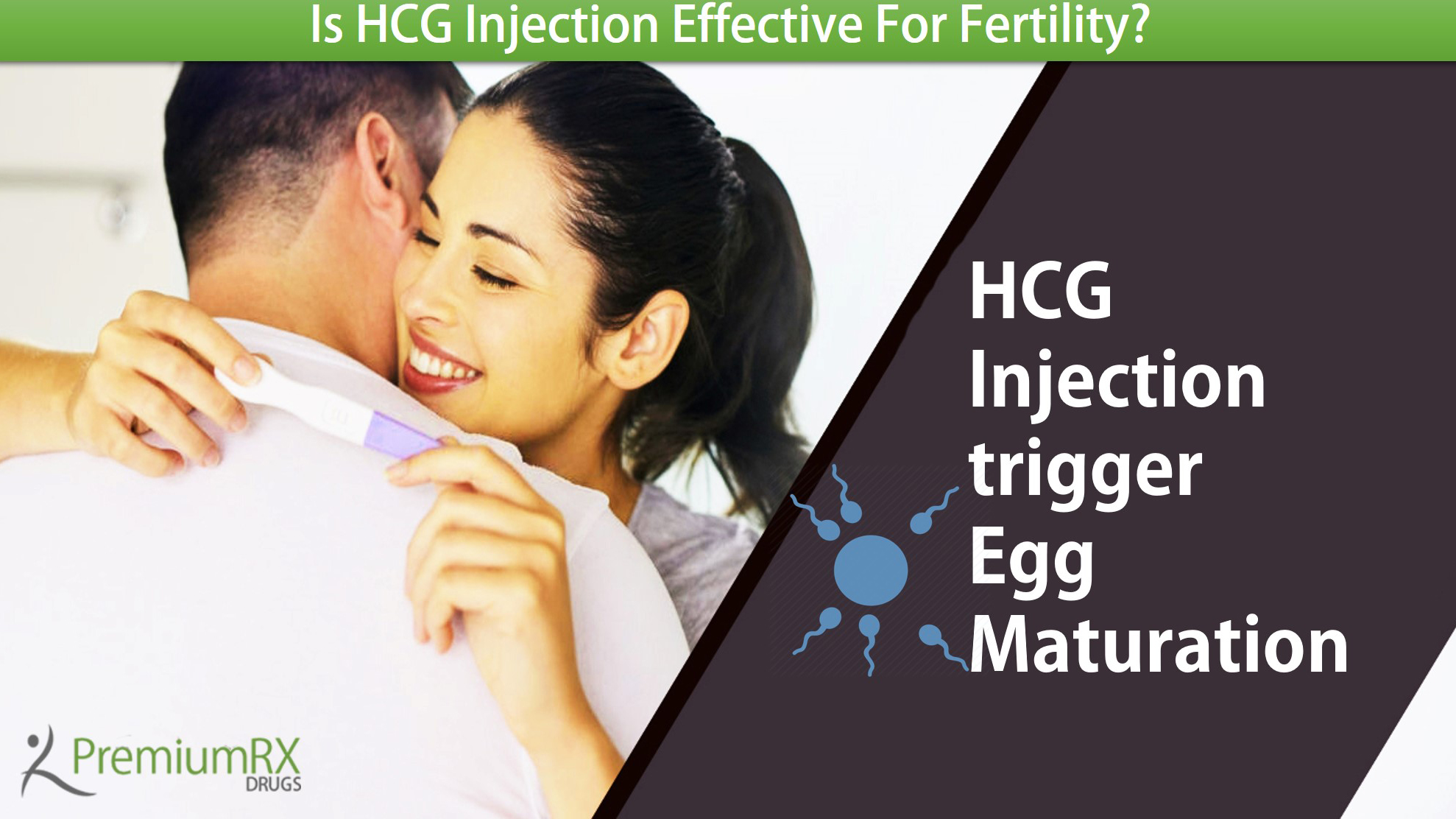HCG, or human chorionic gonadotropin, can be utilised to treat infertility and increase your chances of getting pregnant as part of in vitro fertilisation.
HCG shots have long been associated with the initiation and maintenance of pregnancy. It is also known as the hormone of pregnancy and has an important role in human reproduction. The benefit of an HCG injection is that it can trigger egg maturation and ovulation in women. Moreover, HC mimics luteinizing hormone (LH) to induce oocyte maturation and ovulation. In males, LH boosts testosterone production. This makes it effective as a fertility treatment for both sexes. HCG can be given as a substitute for the pituitary hormone LH. It plays a key role in infertility treatments due to its similar structure.
How do HCG shots work to boost fertility in women?
In women, Doctors prescribe HCG injections to stimulate ovulation during assisted reproductive technology like IVF. HCG is also known as a trigger shot because it triggers ovulation in women about 36 hours later. It causes egg maturation, making them ready for fertilisation. During in vitro fertilisation, an HCG injection helps stimulate egg maturation before fertilisation in a laboratory. It is commonly utilised in all fertility treatments, including IVF and IUIs (intrauterine insemination).
Doctors utilise HCG injections in patients trying various infertility treatments, all of which have different success rates. HCG is known to boost conception rates in most treatments, including embryo transfer. HCG is sold under various names, including Pregnyl, Ovidrel, Corion, Fertigyn 10000iu, and Profasi. The pregnancy success rate is highly variable, depending on the age of the woman, underlying health conditions and fertility issues of the patients.
How does HCG work to boost fertility in men?
As mentioned above, HCG mimics LH, which is known to boost testosterone levels; testosterone plays a crucial role in sperm production. Doctors prescribe HCG to help boost fertility in males with low levels of testosterone in the body. This can be useful for males who have hypogonadotropic hypogonadism, a condition in which the body does not produce sufficient sex hormones. According to research studies, HCG can help men increase sperm production in about 25% of men. However, the success rate is highly variable. The success with males varies depending on the underlying degree of abnormality in the individual’s health.
You will receive HCG doses as either a liquid or a ready-to-mix powder. If you receive the medication in liquid form, store it in the refrigerator for up to three hours. Do not use it if it has not been refrigerated. If you receive the powder, keep it at room temperature before use. Be sure to use HCG under the supervision of a qualified healthcare professional. Please consult your doctor if you are unsure about how to use the medication.
Can HCG cause Side Effects?
Overall, HCG is safe and effective when it comes to improving fertility. Rarely, women receiving HCG shots may develop ovarian hyperstimulation syndrome (OHSS). OHSS is characterised by enlarged ovaries, which can cause nausea and pain in the abdomen. In severe cases, hospitalisation is required for monitoring. The condition is temporary and typically lasts for 7 to 14 days. Several strategies can be utilised to minimise or prevent symptoms. Multiple pregnancies are also linked with HCG usage. The other side effect is an ectopic pregnancy and twisted ovaries. Using HCG trigger shots can increase the risk of ectopic pregnancy or twisted ovaries. All these conditions are serious and may require surgery. Although these side effects are serious, the overall risk of complications from using fertility medications in combination with HCG is low. Here, it is important to note that taking HCG can trigger a false positive pregnancy test. It takes up to more than seven days to eliminate from the body; it is best to wait 14 days before taking a home pregnancy test.
The Bottom Line
HCG is a pregnancy hormone. It mimics LH, which stimulates ovulation in women and increases testosterone hormone levels in males. It is utilised by 15% of couples in America who cannot conceive after a year or two of trying. HCG trigger shot is common in all types of fertility treatments, but its success rate depends on the patient’s health, trying to conceive and the ART that they are undergoing. Every individual is different, and it is strongly recommended that you consult a urologist or gynaecologist to discuss the best options for you.
Latest posts by Marie (see all)
- What Is Florexa Cream? Uses for Facial Hair Reduction Explained - February 13, 2026
- How Demelan Cream Helps Reduce Melasma and Uneven Skin Tone - February 9, 2026
- Why Dermatologists Trust Tretinoin Gel/Cream for Long-Term Skin Repair? - February 6, 2026




